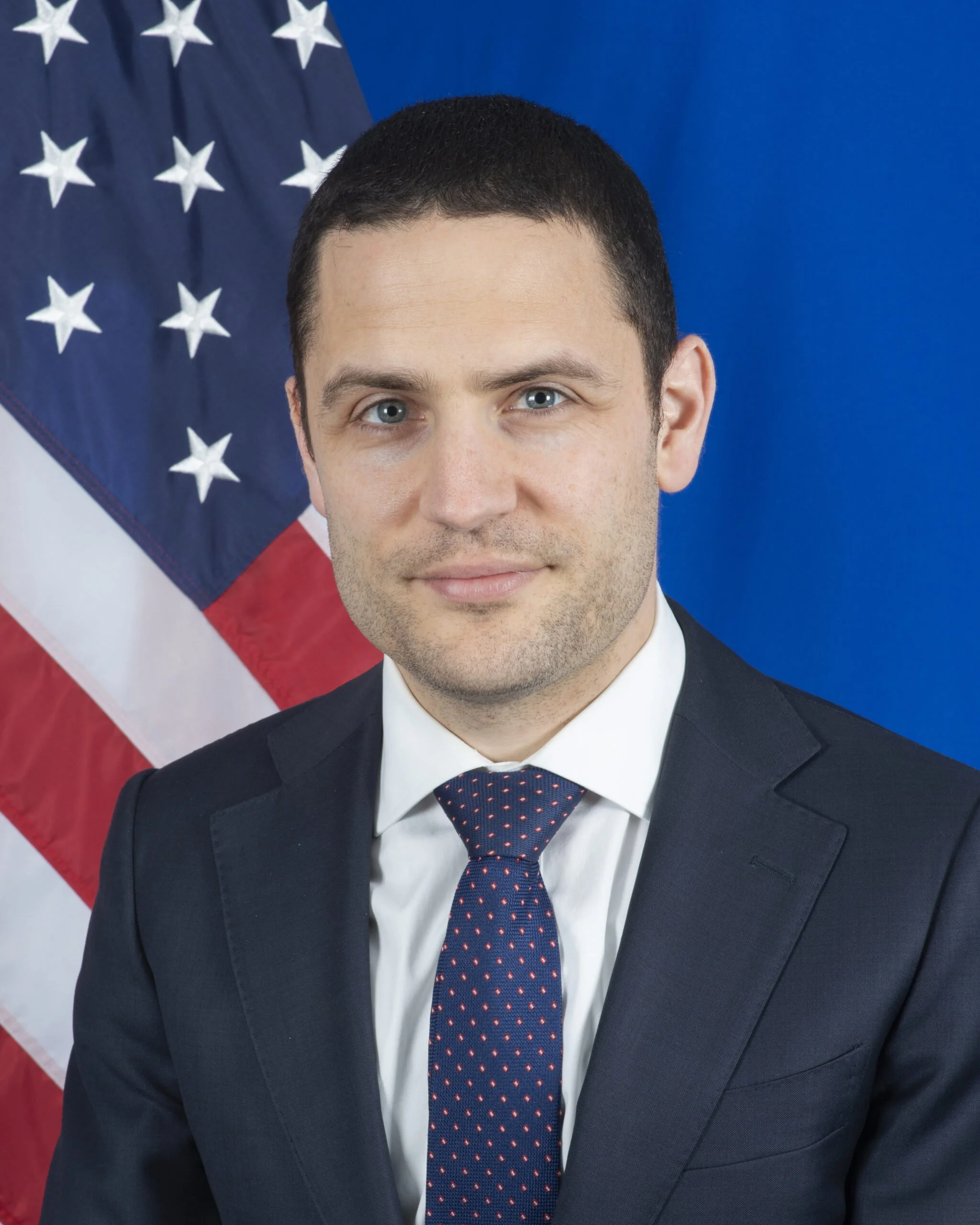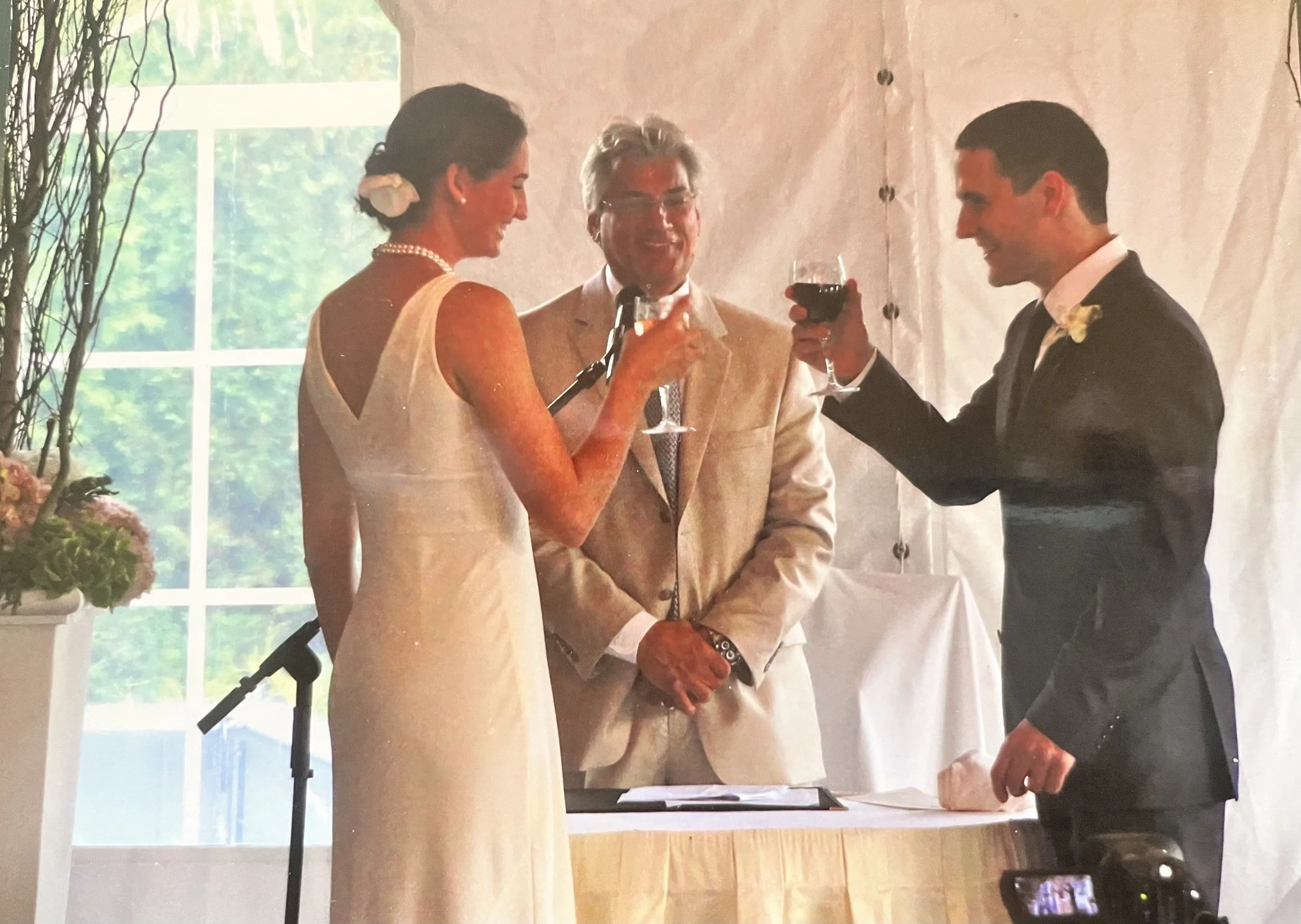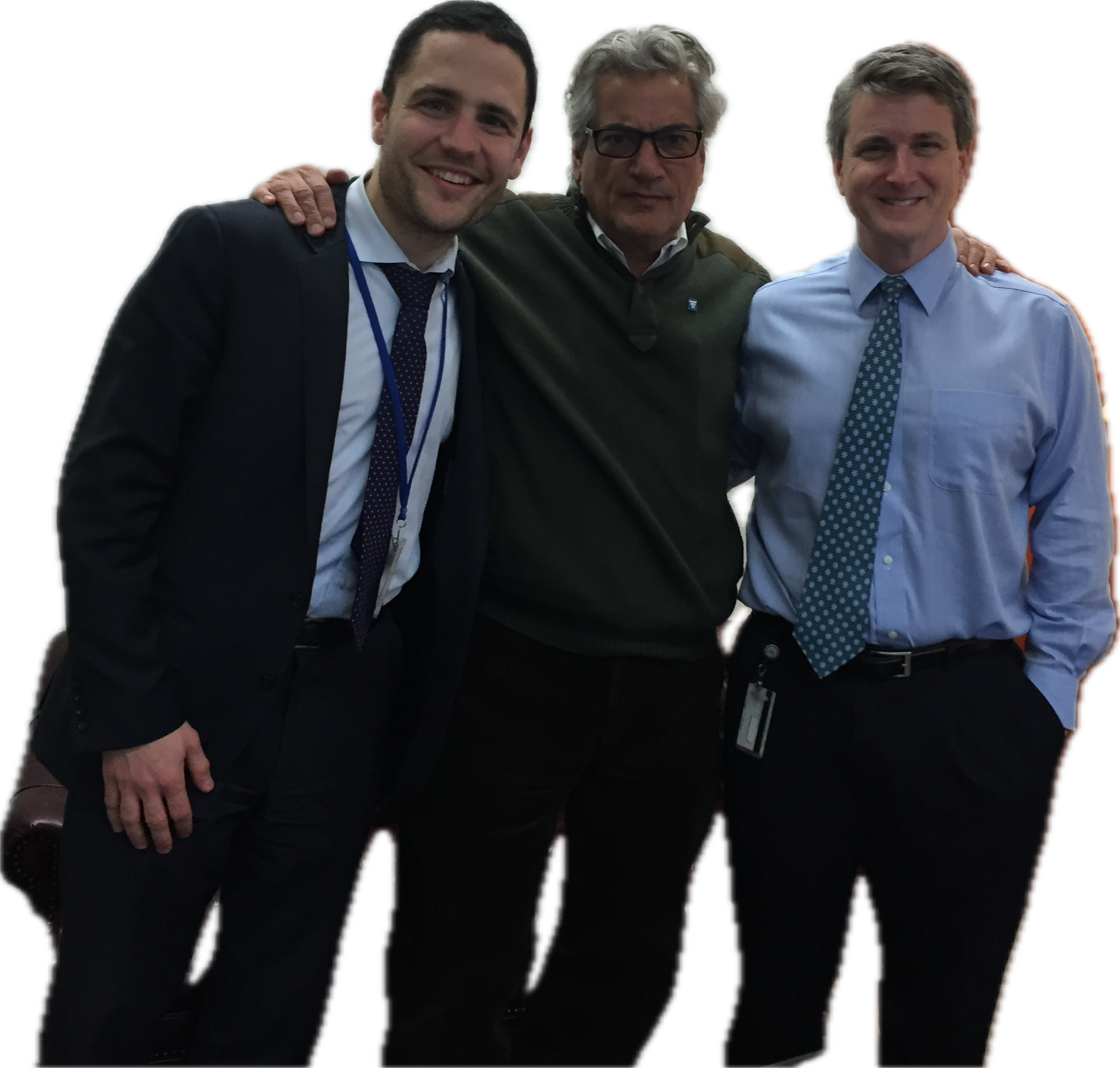Matan Chorev
Reflections on Matan Chorev
By Sherman Teichman
When I reflect on Matan Chorev, I do not see merely the arc of a distinguished career. I see the young man whose cello was never far from reach, whose intellectual restlessness matched his artistic discipline, and whose quiet decency and integrity left indelible impressions. To speak of Matan is to speak of rigor and humanity, brilliance and humility, seriousness of purpose and generosity of spirit.
Born in Jerusalem in 1983 and raised in Boston from 1992 onward, Matan seemed destined for a life that fused art and politics. Trained as a concert cellist, he performed throughout North and South America, Central America, and Israel, studying under Paul Katz at the New England Conservatory. His musicianship was not a distraction from his public life, but an early sign of his discipline and attunement—qualities that would later animate his intellectual and diplomatic work.
At Tufts University, where I first encountered him through my directorship of the Institute for Global Leadership, Matan quickly emerged as one of the most remarkable undergraduate students I have ever mentored. He co-founded the Middle Eastern Student Society (MESS) and helped launch the New Initiative for Middle East Peace (NIMEP), the MENA student think tank and cultural diplomacy project of the IGL. Through his enrollment in EPIIC and IGL immersive education opportunities, he conducted fact-finding missions in Israel and the West Bank, Egypt, Turkey, and Iraqi Kurdistan. His subsequent graduate work at the Fletcher School of Law and Diplomacy culminated in his MALD thesis, Iraqi Kurdistan: Internal Dynamics and Statecraft of a Semi-State, reflected the same clarity, depth, and moral seriousness that characterized his earliest work. He holds degrees from Tufts University, the New England Conservatory, and The Fletcher School of Law and Diplomacy.
At Tufts, he co-authored influential student policy papers, including No Simple Answers: Tufts Students Explore the Complexities of the Arab-Israeli Conflict.
Tufts recognized him with the James Vance Elliott Political Science Prize and the Marshall Hochhauser Prize of the Experimental College, awards that reflected not just intellectual brilliance but his ability to broaden and enrich civic and campus life. Yet what I remember most are not the accolades but the times of debate and discussion, where Matan’s incisiveness was always tempered with decency. He always won the great respect of his peers. As one of my most trusted teaching assistants, he inspired students to find their voice, guiding them while holding himself and them to unyieldingly high standards.
Matan Chorev’s Marriage with Claire Putzeys
With Matan and with another of my accomplished alumni friends, Dan Feldman
It was my great privilege and honor years later to when he asked me to officiate his marriage to another of my wondrous students, Claire Putzeys. That ceremony, held great meaning for me, to be able to help join two extraordinary lives rooted in service, integrity, and care for the world. To me, their partnership has always embodied the balance between private devotion and public calling that defines their lives*.
Professionally, his trajectory has been extraordinary. At Harvard’s Belfer Center for Science and International Affairs, he became Executive Director of the Future of National Security Project and co-led, with another of my alumni Jake Sherman, the seminal institutes workshop Prospects for Security and Political Reconciliation in Afghanistan. This effort encouraged policymakers to look beyond material incentives in reintegration programs and to confront the realities of reconciliation, then even with the Taliban with intellectual honesty.
He later entered government service. At USAID, he served in Morocco and Yemen, working on crisis governance and stabilization then becoming speechwriter and senior advisor to William J. Burns, then U.S. Deputy Secretary of State, and most recently the former Director of the CIA. He also served as a Rosenthal Fellow at the Office of the Deputy Assistant Secretary of Defense for Policy Planning. Matan was also intimately involved with the Geneva talks with Iran which produced which produced the now aborted significant diplomatic agreement which helped curtail Iran’s development of a nuclear weapon. Burns praised Matan in his memoir The Back Channel, acknowledging his precision, and care with the preparation of the book specifically the fastidious treatment of declassifying documents.
Matan was chosen by Burns to become his Chief of Staff of the Carnegie Endowment for International Peace (2015–2020) which Burns directed. Subsequently, he was Chief of Staff of the National Security and Foreign Policy team on the Biden-Harris Transition, where he was also the principal author of the 2020 Democratic Party Foreign Policy Platform. Critically, he then served as Principal Deputy Director of the Secretary of State’s Policy Planning Staff (a formidable position first created by George Kennen), helping to shape U.S. foreign policy in a time of historic global change.
Today, he continues this work at the RAND Corporation, where as Associate Director of the Global and Emerging Risks Division, he examines the profound uncertainties of our era with the same balance of foresight and precision that has defined his career. He is also a David Rockefeller Fellow at The Trilateral Commission and a term member of the Council on Foreign Relations. His most recent article is America Should Assume the Worst About AI.
And yet, beyond the distinctions and titles, what I return to is his human decency. The way he treats colleagues with respect, adversaries with fairness, and friends with loyalty. The humility that tempers brilliance. The cello, the scholarship, the diplomacy—these were not separate pursuits but strands of a life woven together by discipline, empathy, and integrity.
As an educator, there is no greater satisfaction than seeing a student grow into not just a professional of consequence, but a person of principle. In Matan, I see both. I admire him deeply—not just for what he has accomplished, but for the manner in which he has chosen to live, to serve, and to care.
Matan’s publications reflect both range and depth. His writings are distinguished not merely by their analytic precision but by their moral weight.
Chorev, Matan. “The Dilemma of the Semi-State: Internal Dynamics and Statecraft of Iraqi Kurdistan.” Fletcher School MALD Thesis, 2007.
Chorev, Matan (with Jake Sherman). “Prospects for Security and Political Reconciliation in Afghanistan.” Belfer Center for Science and International Affairs, Harvard Kennedy School, 2008.
Chorev, Matan (with Conor Foley). “Ruthless Humanitarianism: Why Marginalizing Private Peacekeeping Kills People.” In Private Military and Security Companies: Ethics, Policies and Civil-Military Relations, Routledge, 2008.
Chorev, Matan (with Kristian Horvei). “Combating Terror Financing: Foreign Policy Implications for the United States.” Insights, Institute for Global Leadership at Tufts University, 2005.
Chorev, Matan (with Negar Razavi and Matt Edmundson). “No Simple Answers: Tufts Students Explore the Complexities of the Arab-Israeli Conflict.” NIMEP Insights, 2006.
Contributions in Turkish Policy Quarterly, Journal of Peace Operations, Hemispheres, Al-Nakhlah, and Insights (Tufts Institute for Global Leadership).
*→ The moment also provided me with a memorable moment of levity. Many of my former students were present at the ceremony, looking at their stopwatches and iPhones because knowing of my tendency to speak spontaneously and knowing that Matan had given me a strict 4 minutes to talk about them both, there was an under and over bet about whether I could hit the mark. My remarks ended at the nanosecond of 4 because my wife insisted that I write my comments out and I timed them.




